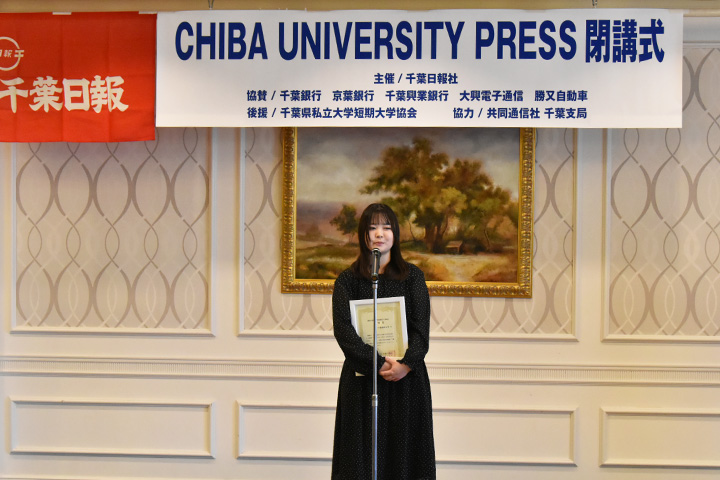At the "CHIBA UNIVERSITY PRESS" sponsored by the Chiba Nippo newspaper, a special award was awarded to a paper created by students from Faculty of Commerce and Business Administration and Faculty of Global Studies. Our university has been participating since 2017, and this is the second time we have won a special award, and the fourth year in a row that we have won an award.
The purpose of "CHIBA UNIVERSITY PRESS" is to help university students learn the media literacy necessary for working adults through creating a newspaper, which will lead to strengthening their ability to disseminate information and contribute to the improvement of the university and the local community. This year, four universities in Chiba Prefecture, including ours (Edogawa University, Teikyo Heisei University, and Tokyo University of Information Sciences), participated.
This time, the students selected their interview locations based on the fact that Chiba Prefecture has over 200,000 foreign residents, ranking sixth in the country. They found that Chiba Prefecture has the highest percentage of "family residents." They interviewed the children of foreign residents, as well as local Japanese volunteers and instructors, to find out about the problems they face in the context of different languages and cultures. This article was published on October 21st.
At the closing ceremony on November 28th, one school was awarded the Excellence Award and one school was awarded the Special Award, and certificates of commendation were presented to the students.
In their commentary by the Chiba Nippo newspaper, the judges praised the project for its "attempt to tackle a difficult theme and the careful reporting."

Photo courtesy of Chiba Nippo Newspaper
During this reporting activity, I had the opportunity to meet foreign children, and I tried to use Japanese that was as easy to understand as possible for children who were not good at Japanese. I realized that in order to overcome the language barrier and accurately understand the other person's thoughts, it is necessary to have the imagination to put yourself in the other person's shoes and the ability to listen patiently.
I also learned that in interviews and writing, it is important not only to ensure the accuracy and depth of the content, but also to make it easy for the reader to understand and relate to. I would like to use this experience in my future studies and activities, and become a person who can deepen understanding with people from diverse backgrounds.
Miu Muto (3rd year, Faculty of Global Studies graduated from Mimomi High School)